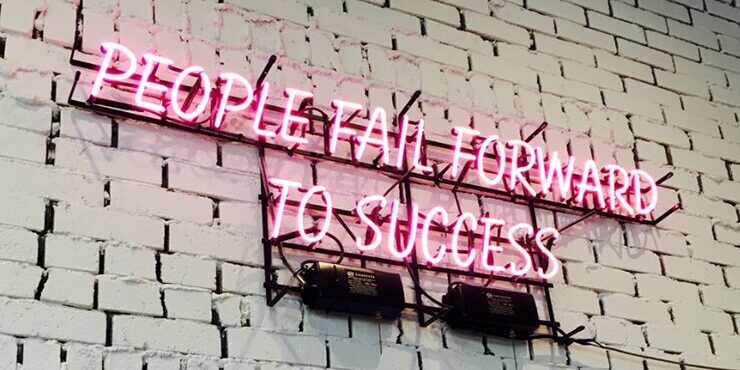
Why You Should Be Embracing Failure – Not Avoiding It
Recently, in an interview, Autumn Calabrese (creator of the incredibly successful workout programs 21 Day Fix & 80 Day Obsession) stated that she doesn’t believe in failures. Events in our life that we view as failure or missed opportunities are actually just redirects putting us on the path we’re meant to be on. In her words: “If you get lost, and you drown in the failure, you actually miss your opportunity to be redirected to something much better”
Whether or not you believe that failures are redirecting you to the path you are meant to be on, failure is an important part of success.Think about Richard Branson, Elon Musk, and Bill Gates. They have not obtained the level of success they have today without experiencing failures along the way. The secret is learning how to bounce back from failure.
Success Lies In How Resilient You Are
German aviator, airline executive and religious leader, Dieter Friedrich Uchtdorf says “It’s your reaction to adversity, not adversity itself that determines how your life’s story will develop.” Your ability to get back up every time you fall will determine how successful you are in life. So how can you be more resilient? It’s not about blind optimism, but rather choosing to focus on the positives of each situation. That’s not to say you don’t feel negative emotions, it’s just about not dwelling on them. In fact, allowing yourself to feel those negative emotions gives you multiple perspectives to a challenge. These different perspectives allow you to become innovative in the way you solve problems.
Failure & Innovation Go Hand in Hand
Jeff Bezos, CEO of Amazon, has made the tolerance of failure a large part of the culture at Amazon, and believes it plays a big role in the company’s successes. In an interview with Business Insider, he states “failure comes part and parcel with invention. It’s not optional. We understand that and believe in failing early and iterating until we get it right.”
In fact, there is a long history of failures and mistakes leading to massive innovations. Thomas Edison had to experiment with thousands of filaments before he found the one that would work to make a light bulb with the amount of power he wanted. By making mistakes, we learn better ways to do things. Managers who have little tolerance for mistakes create a culture that stifles creativity and innovation.
The focus is not only on failure (obviously), but it is on giving employees the freedom to experiment without fear of punishment. Repeated experimentation eventually leads to success. When Edison was experimenting with the light bulb, he did so in the hopes that each iteration would yield the results he was looking for. He wasn’t deterred by failure, learned from each version and eventually achieved the success he was looking for. In today’s world, Edison may have been seen as unproductive by his manager during these experiments and may have ordered him to stop before he had the chance to succeed. All of this comes down to one key concept: you must be willing to accept failures as a necessary part of the innovation process.
None of this is to say that failure isn’t painful. We are taught from a young age to avoid it at all costs. We have developed an aversion to it without realizing that it can allow us to unlock great potential. But to do that, we need to shift our mindset on it. We need to start viewing it as a tool for success rather than a detriment.
From January 29, 2019
Search Posts
Subscribe!
Recent Posts
- Episode 226: Around the World May 28, 2025
- Episode 225: Better Beats Perfect May 23, 2025
- Episode 224: Pavement to Purpose May 15, 2025
- Episode 223: The Talent Trap May 6, 2025
- Episode 222: Creating What’s Next April 29, 2025
